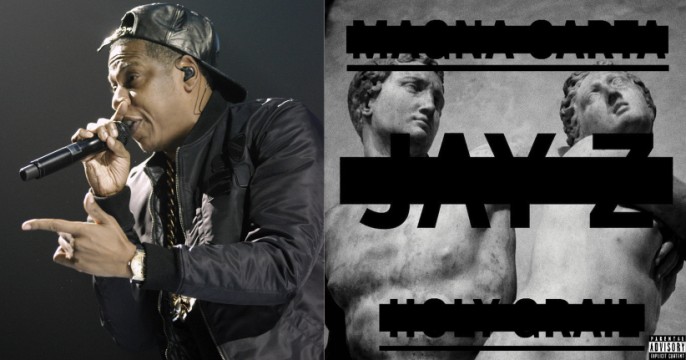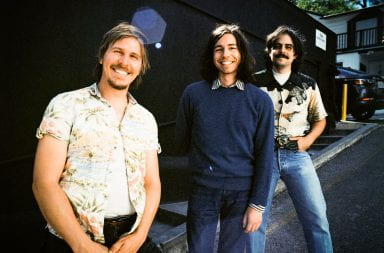Much ado has been made about the death of the full album, but it’s still alive and well — just in need of a good mid-life crisis.
For the most part, the process of unveiling new music is pretty much the same: A band or artist announces an album, anticipation builds and the album drops and not many consumers care.
But some are not satisfied with that level of apathy. They have learned how to work the market and can shake up the entire industry just by shaking up their own album rollout.
When electronic legend Richard James (who makes music as Aphex Twin) announced his first record in 13 years through a strange link on the deep web last week, only a certain type of music fan cared (read: music obsessive). But in the past few years, more and more mainstream artists have taken to uncommon measures to alert the world of their new music.
Daft Punk, consisting of Guy-Manuel de Homem-Christo and Thomas Bangalter, might have started and perfected the art of tantalizing its fans. The Frenchmen are legendary hermits, and any news coming from their base in France between their roughly half-decade-long breaks between records sends their fans into a frenzy. The last the public had heard from them was on their 2007 tour before they returned to their Paris studio to record their fourth studio album, released in 2013.
For an album that took years to craft, the simple announcement-stream-release cycle wouldn’t do.
We first got wind of the new album by the robots through a 15-second commercial that ran during “Saturday Night Live.” They featured the now-famous looped guitar from “Get Lucky,” which at that point was the most exciting thing we had heard from Daft Punk in years.
The full song was broadcast at Coachella 2013, and the duo’s fantastic “Random Access Memories” was released to the public a month later. Before long, more acts took similar approaches to marketing.
Possibly one of the biggest bands in the world, last year, Arcade Fire’s first album in three years came with both bombastic and simple promotion.
Revealing bits and pieces of hints about a new record throughout last year that included cryptic tweets and graffiti in seemingly random places, the band members laid out a puzzle for fans to solve.
The band’s manager, Scott Rodger, gave his reasons for the excessive yet anonymous rollout in an interview last year with “The Hollywood Reporter.”
“We’re in an information overload,” Rodger told the site, “but just to be recognized you have to be more creative and do things in a way that people will talk about socially — online but also in the physical world. How do you become one of those things that people talk about?”
The campaign was branded “9/9/9” and came to a head on Sept. 9 at 9 p.m., when the band released an interactive music video and simultaneously performed a small concert under a pseudonym.
While Daft Punk’s antics were mostly accepted and its sly nature expected, Arcade Fire received some criticism for what some called “guerilla marketing.” Some fans felt they were being teased and would have preferred that group be straight forward rather than taunt them.
Still, it cannot be denied that “Reflektor” was a great success, and some of that certainly has to do with the campaign.
But Daft Punk and Arcade Fire certainly were not alone in taking their own approaches to album marketing.
Kanye West took the minimalism of “Yeezus” to the streets, projecting his face rapping his song “New Slaves” on buildings around the world. Lady Gaga held an “artrave” to announce her album “ARTPOP,” and Jay Z and Eminem both used commercials during primetime events (the NBA Finals and the MTV Video Music Awards, respectively) to announce new records.
But the queen of modern pop music is also the queen of blowing our collective minds when it comes to marketing an album. Which, in this case, means no marketing.
On Dec. 13, Beyoncé released her self-titled fifth album without any warning. It blew up quickly, becoming the fastest-selling album in iTunes history. It also debuted at No. 1 on the Billboard 200 chart, selling more than 800,000 copies in three days. Without any promotion, hints or rumors of its arrival, Queen Bey had scored her fifth-straight No. 1 record.
The album’s method was so successful that it has even entered the music industry vernacular — pulling a Beyoncé: to release a piece of music when no one expects it.
While many of the biggest albums of 2013 experimented with elaborate release strategies, Beyoncé used the most innovative strategy of all and was the most successful with it. Which might be why now, in 2014, there has been a drop off of creativity in the promotion department. The biggest artists in the word have seen that surprise is the best element in an album release, so don’t be shocked to see the next record from some of music’s biggest stars appear as soon as tonight.









